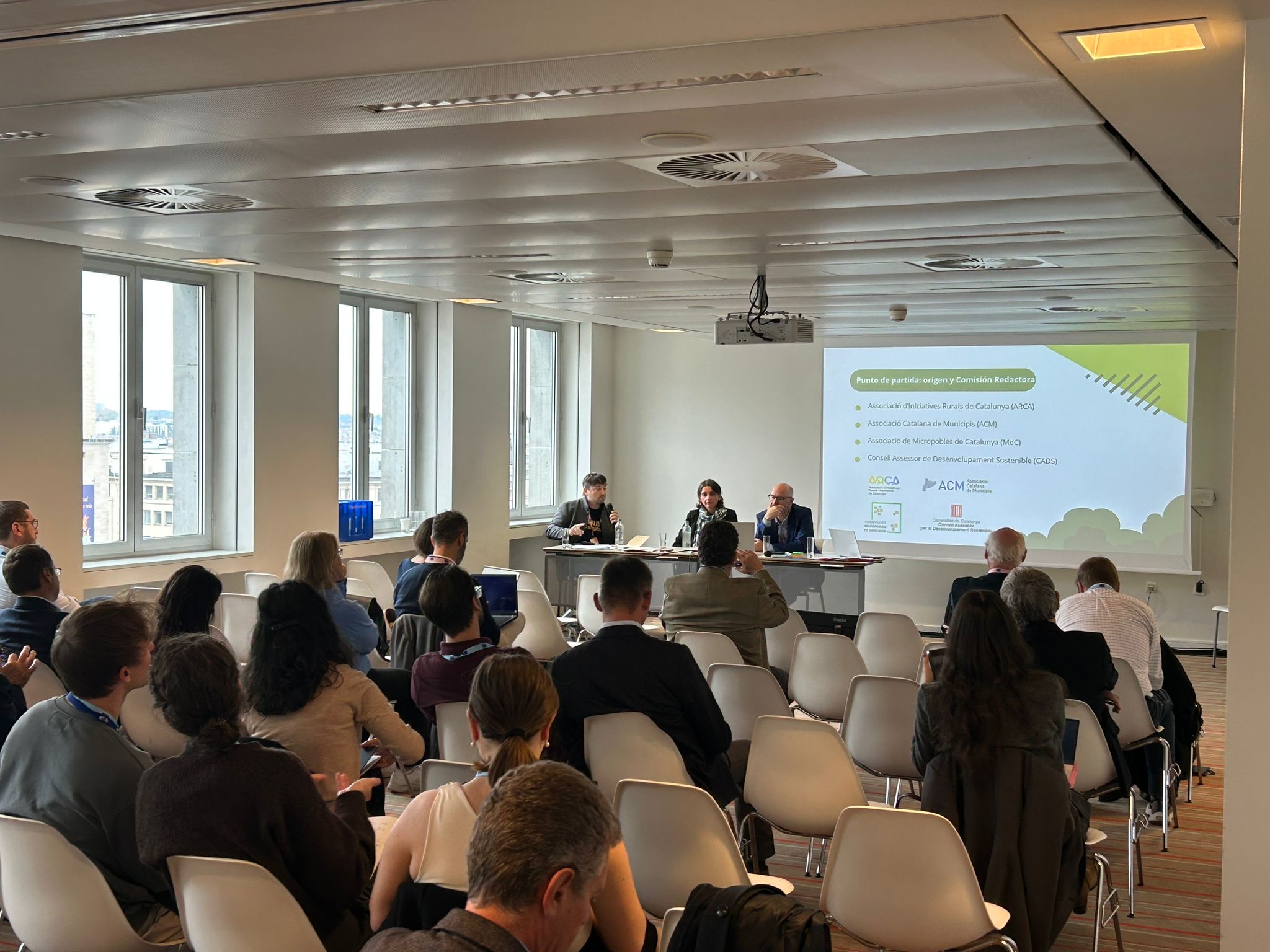The R.E.D. and the JRC (European Commission) organised a workshop during the Week of Regions and Cities (13–15 October 2025).
During this workshop, presentations highlighted how European rural areas are facing long-term demographic decline, ageing and the exodus of young people, making territorial attractiveness a key political priority. Several possible solutions at European level (Rural Vision 2040, the Rural Pact, ITI, cohesion policy) and local level (the Rural Agenda for Catalonia) were presented.
The EU’s Rural Vision 2040 aims to transform rural areas into attractive, well-connected and dynamic places through integrated multi-level governance and better coordination of European, national and regional policies. Key EU initiatives include the Rural Pact, the Rural Action Plan, the strengthening of LEADER programmes, improved connectivity and new tools such as rural impact verification and rural observatories.

Rural economies are diversifying into services and construction, but lag behind urban areas in terms of innovation and employment in knowledge-intensive sectors. Data show that remote rural areas could lose up to 8% of their population by 2040, but they also harbour entrepreneurial potential, with high-performing rural start-ups in agriculture, energy and robotics. Integrated territorial development receives €41.3 billion in funding under cohesion policy, with CLLD being the main instrument for supporting community-led rural strategies.
The Rural Agenda of Catalonia illustrates a participatory and citizen-led approach, involving 1,247 participants and 357 organisations to define 892 actions around seven strategic challenges. The Catalan model emphasises shared governance between civil society, the regional government and the parliament, with the support of specialised committees such as those responsible for communication, water management and the protection of rural areas. Concrete achievements in Catalonia include new rural schools, housing programmes, support for newcomers, revitalisation projects and a new legal framework (Estatuto del Municipio Rural) aimed at strengthening services and tax incentives.
All presentations converged on the message that rural development requires long-term commitment, multi-level cooperation, better data and renewed political momentum to ensure that rural areas remain resilient, innovative and socially cohesive.
Ressources: EURegionsWeek_PPT_ Sesssion Code 14WS252376
